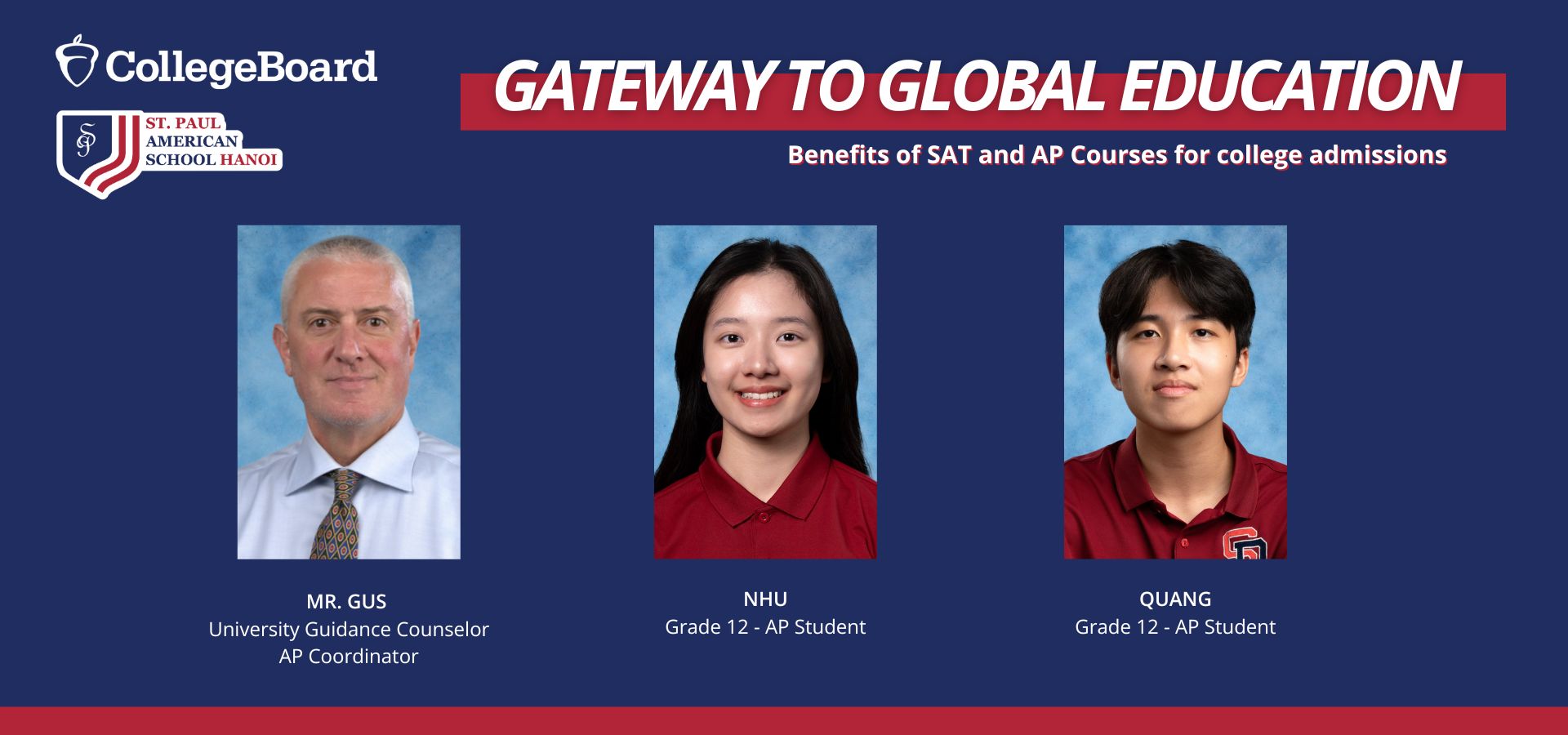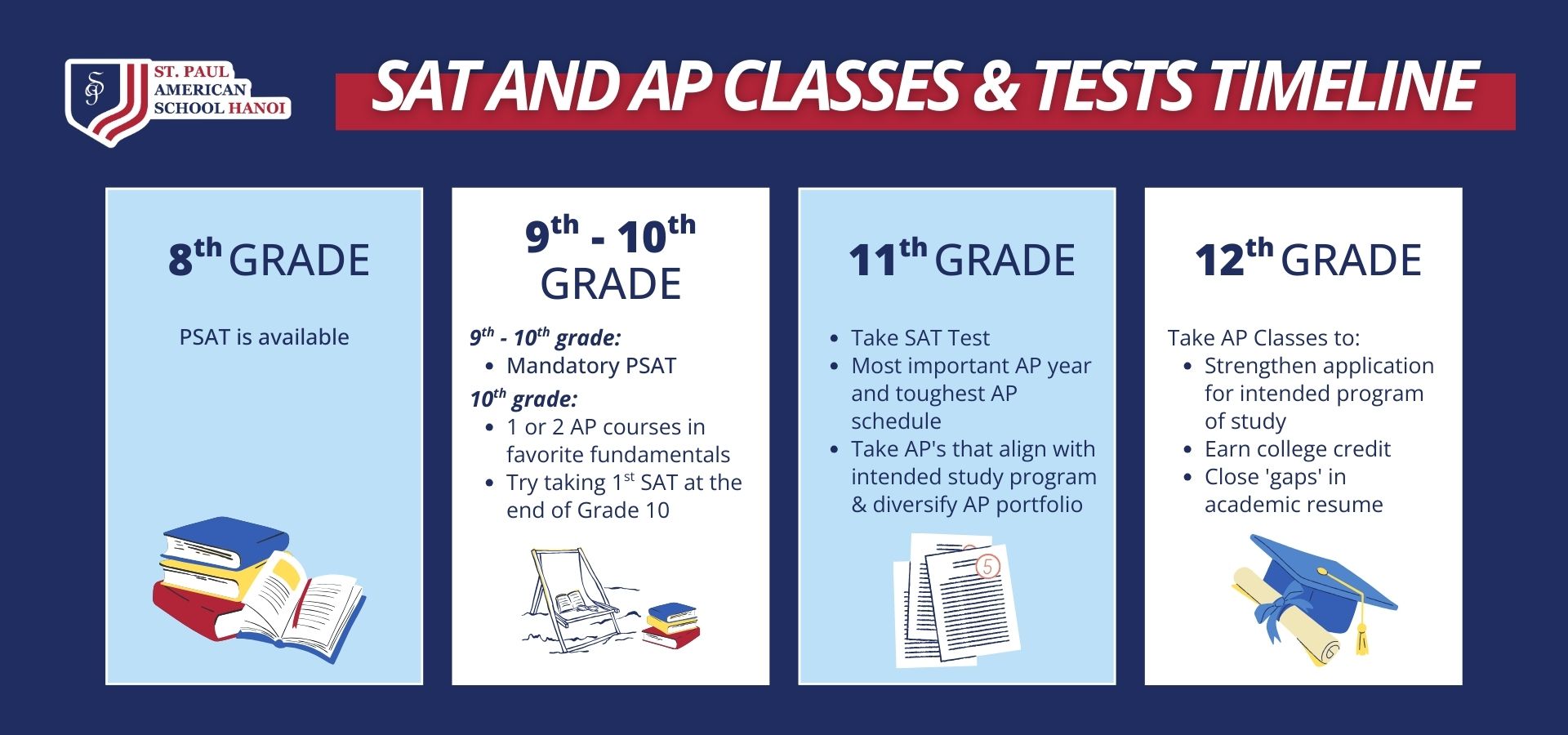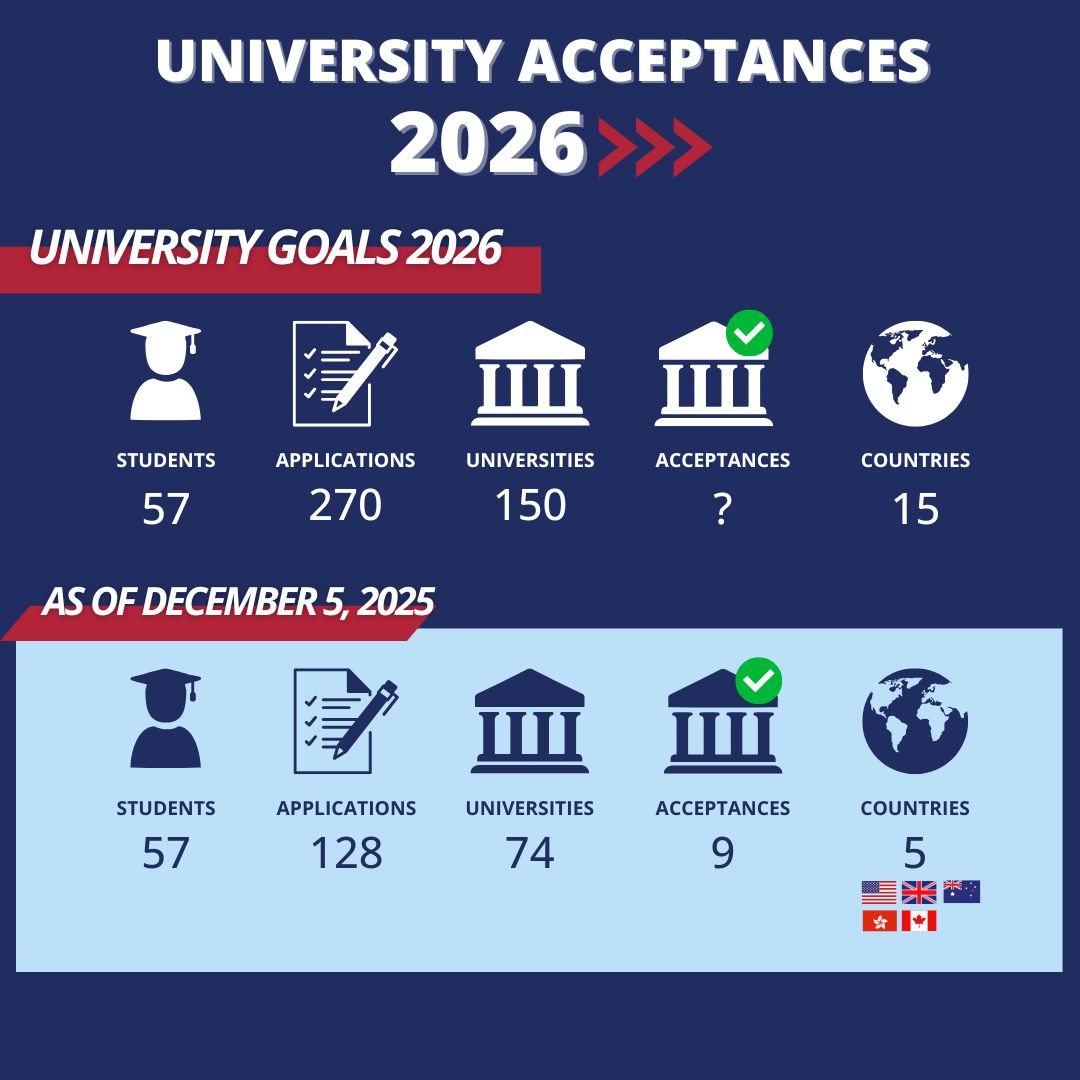How do you think the AP and SAT contributes to building a competitive application, not just the exam score, but the overall contribution?
Mr. Gus: The most important thing is we welcome about 150 universities on our campus every year, and every one of those admission directors say, “When I see a kid that has ACT, SAT and challenges themselves in AP courses, we know that they’re college ready.” That’s by far the number one thing I would say. You set yourself apart from other applicants by challenging yourself with these AP courses.
Besides the advantages of saving costs and you can get credit at the school, the number one thing those counselors and admissions directors look at are the courses students take, and say, “This student is ready to be a positive contributor at the next university level.”
In my opinion, the SAT and AP is a great tool to pull different students and from various backgrounds in the one objective measure. For example, if you’re a Vietnamese student, Japanese student, or international student, the best way to stand out is to show mastery by the same standard where AP and SAT is part of that.
What about test-optional policies for university admissions, especially in the US?
For the test-optional policy, we have to remember that the policy really came into effect and grew during COVID time, and the trend now is going back to test required, at a lot of places. But there will still be some test-optional, but here’s my number one answer to that question to all my families. You want to give yourself the most amount of options possible. So if you don’t take the SAT, you’re immediately eliminating a lot of schools that you won’t be able to apply to because they require an SAT score.
So if you take the SAT and you have that score, that allows you to apply to schools that require an SAT and that do not. And a good example of this is we had a representative from the University of Virginia on our campus, and she said, they are test-optional and they just give a little guideline of saying, “If you have a score in this range, we would say you should submit.” If you have a score below that, then you don’t. And the applications will be considered equally, right? At least by taking the SAT, you give yourself the option.
And I will also say the number of, let’s just say names, so maybe if you’re talking like the top 100 type universities, they’re all moving back towards tests required. A big part of that is this predictive nature of the SAT. It’s the most subjective tool that these universities can look at to sort of level out all of the students and look at them.
It really comes down to giving yourself the most options, because if you’re looking to apply and you’ve got a deadline coming up and you realize, oh my gosh, they require SAT, I’ve never taken it. You’re not going to be able to apply to that school. So it gives you more options, and it helps your overall application.












